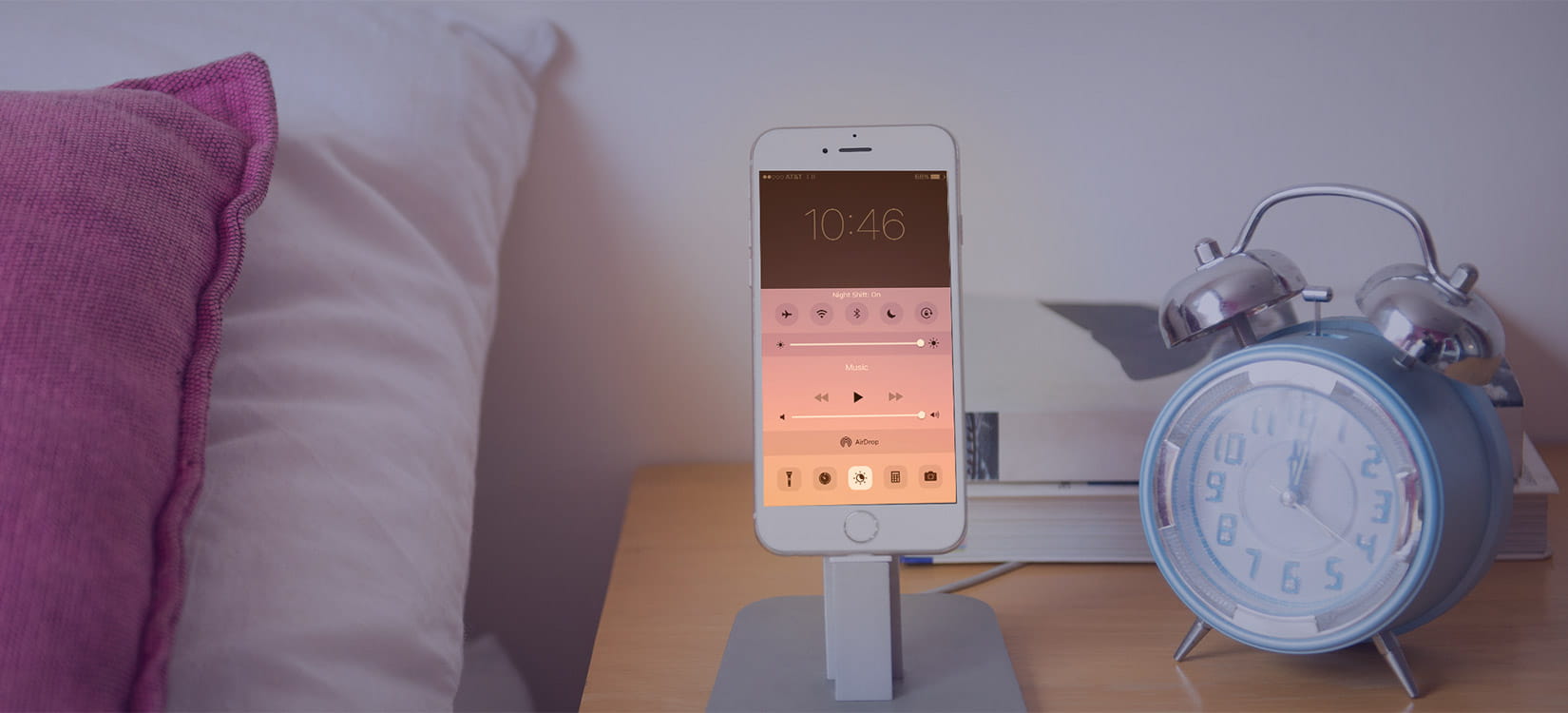Orange is the new black: How the iPhone's latest feature might help you sleep better
 No longer do most people fall asleep with a book. Or at least a paper book. The reading material of choice as slumber calls is an iPad or iPhone. This despite the mounting research by Ohio State’s Randy Nelson, PhD, chair of the Department of Neuroscience, and others that shows how the light from our electronic devices can negatively affect our sleep, moods and metabolism.
No longer do most people fall asleep with a book. Or at least a paper book. The reading material of choice as slumber calls is an iPad or iPhone. This despite the mounting research by Ohio State’s Randy Nelson, PhD, chair of the Department of Neuroscience, and others that shows how the light from our electronic devices can negatively affect our sleep, moods and metabolism. As we get closer to the time of day that our bodies want to sleep, the blue cast of the screen interferes with our circadian rhythms – the thing that lures and captures real, deep sleep. In addition to poor sleep, exposure to dim light at night can make us gain weight and bring on anxiety.
So it is to our sleepy delight that Apple rolled out a new feature recently as part of its latest operating system for tablets and phones that it is calling Night Shift. This new program uses your device’s clock and location to determine when it’s close to bedtime, then automatically adjusts the screen to a more yellow/orange hue, a color that is proving to be less invasive to our sleep cycle.
“We are the result of 3-4 billion years of evolution under brightly illuminated days and dark nights. Our circadian rhythms are set by the short blue-like wavelengths of morning and not affected by the longer red-orange wavelengths in the evening. Melatonin – a hormone from our pineal glands – is secreted only during the night, but not if our eyes are seeing short-wavelength (blue) light. The relatively recent ability to flood our eyes with blue light at night suppresses our melatonin, which can disturb internal circadian rhythms that control our biology and behavior, especially sleep,” Dr. Nelson explains.
The softer, warmer yellow/orange should also provide a more calming environment for you as opposed to the bright blue color your device normally emits.
“Because the receptors in our eyes that tell our central biological clock, which controls melatonin and sleep, when it is light are maximally sensitive to bluish light and not very sensitive to amber/red light, exposure to dim orange-red light at night should not affect our sleep.”
Of course, the best night’s sleep begins with completely avoiding a backlit screen at bedtime. But, if the thought of disconnecting completely keeps you up at night, Dr. Nelson suggests you at least consider a de-escalation. “If you have trouble falling asleep, consider powering down in the half hour or more before bed.”




